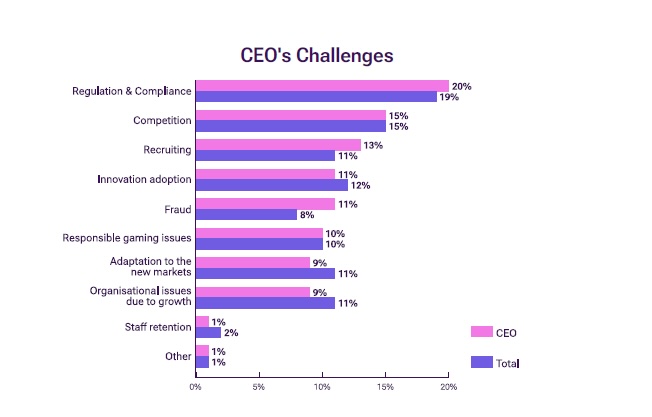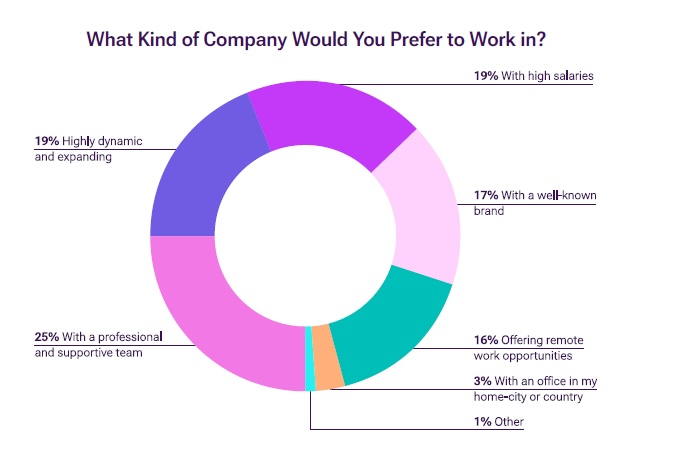EvenBet Gaming: Tackling Recruitment Challenges

Software supplier EvenBet Gaming’s recent look at igaming trends highlighted recruitment as one of the biggest challenges facing Chief Executives.
In the context of an ever-expanding industry, it’s getting harder to attract specialized local talent.

EvenBet surveyed over 350 industry professionals to pull together its latest annual ebook, Core iGaming Trends and Challenges in 2024, exploring the most pressing industry concerns from the previous year.
COMPLETE iGAMING spoke exclusively with EvenBet Gaming’s Chief Executive, Dmitry Starostenkov, and HR Director, Daria Fot, to find out if these recruitment concerns differ by region and how companies can tailor their approach to effectively navigate the challenges.

EvenBet Gaming Chief Executive Dmitry Starostenkov

What key differences are apparent in the responses of those focused on North America, Latin America, and Asia regarding recruitment challenges?
In North America, the recruitment challenge is characterized by a highly developed market with a significant number of qualified specialists. However, the demand for talent often exceeds supply, leading to intense competition among companies.
In contrast, Latin America faces a shortage of educational institutions capable of producing skilled professionals, resulting in a lower supply of qualified candidates despite high demand. Asia presents a more balanced situation; while there is a strong pool of talent due to established educational systems, the market is still developing compared to North America and Europe.
What do you think is the reason for these contrasts?
The contrasts can be attributed to differences in market maturity and educational infrastructure. North America’s advanced technology sector creates a high demand for talent, while Latin America’s education system struggles to keep pace with industry needs. In Asia, a robust education system produces skilled professionals who can meet the demands of both local and international markets, but the overall market is not as saturated as in North America.
How does the importance of factors such as a supportive team, dynamic business environment, and high salaries differ in North America, Latin America, and Asia?
In North America, candidates prioritize non-monetary factors such as team dynamics and corporate culture because salary ranges are relatively stable across companies. In contrast, professionals in Latin America often focus more on financial compensation due to significant disparities in salary offerings among employers. In Asia, while there is an appreciation of both salary and workplace culture, candidates may still lean towards financial incentives given the varying levels of economic development across different countries.
What are the biggest challenges currently facing igaming companies in emerging regions such as Latin America and Asia?
The primary challenges for igaming companies in these regions include cultural and language barriers that complicate recruitment processes. In Latin America, finding qualified candidates with the necessary skills remains difficult due to limited educational resources. Meanwhile, in Asia, while there is a broader availability of skilled professionals, companies may struggle with integrating these talents effectively into their operations due to regional differences in workplace culture and expectations.
EvenBet Gaming HR Director Daria Fot

How has a generational shift affected recruitment, and do effective talent acquisition and retention methods differ depending on this demographic?
The generational shift, particularly with the rise of Generation Z, has reshaped recruitment strategies. Younger generations are digital natives who place significant value on a company’s culture and social responsibility. Unlike previous generations, who focused primarily on salary and work schedule, today’s candidates are interested in what companies stand for beyond just their products or services.
Instead of focusing solely on financial compensation, igaming companies now emphasize values and corporate culture. A key shift in recruitment strategies includes using social media and Telegram channels to advertise job openings, reflecting the digital preferences of younger candidates. Moreover, the onboarding process has evolved to be more engaging, using visual materials such as slides, webinars, and interactive content, which cater to the shorter attention spans of younger generations.
How can igaming companies localize their approach in emerging markets, such as Brazil, to emphasize employee wellbeing and retain valuable staff?
In emerging markets like Brazil, igaming companies must adapt their approach to align with local values and cultural norms. One way to retain valuable staff is by focusing on initiatives that resonate deeply with employees, such as social responsibility programs. For instance, a company might offer employees opportunities for volunteering and engaging in local community projects.
An example of this is a company that supported one of their programmers, who came from a small village, by helping to renovate a local school. This gesture not only supported the local community but also demonstrated that the company cares about its employees’ personal lives and their impact on the community. Such initiatives create a deeper sense of purpose and loyalty to the company, and they resonate particularly well in markets like Brazil, where social impact and community ties are highly valued.
With a supportive team being the most important aspect for professionals, how can igaming companies convey the message that they foster a positive work environment?
iGaming companies need to actively promote their values both internally and externally. One effective method is by utilizing internal ambassadors who help spread the company’s core values and ensure that corporate events and team-building activities align with these values. These ambassadors also play a key role in cultivating a supportive atmosphere by creating meaningful connections between employees.
Additionally, celebrating individual and team successes and offering support during difficult times reinforces a positive and inclusive culture. For example, many companies offer substantial health insurance packages to cover medical expenses. These actions show employees that the company values them not just as workers, but as individuals, nurturing a sense of belonging and loyalty.
With higher salaries no longer the key to employee happiness, what are some non-traditional methods of retaining talent?
While higher salaries remain important, companies are increasingly looking at non-financial incentives to acquire and retain talent. This includes providing opportunities to engage in meaningful social initiatives, offering emotional support during tough times, prioritizing personal and professional development, supporting flexible work schedules, and building a positive, purpose-driven workplace culture, which can all contribute to strong morale and employee wellbeing.
These actions demonstrate a genuine concern for employees both inside and outside the workplace and help build an emotional connection with the company. By showing that they care about their employees as people, not just workers, igaming companies can foster greater loyalty and retention.
Verticals:
Sectors:
Topics:





